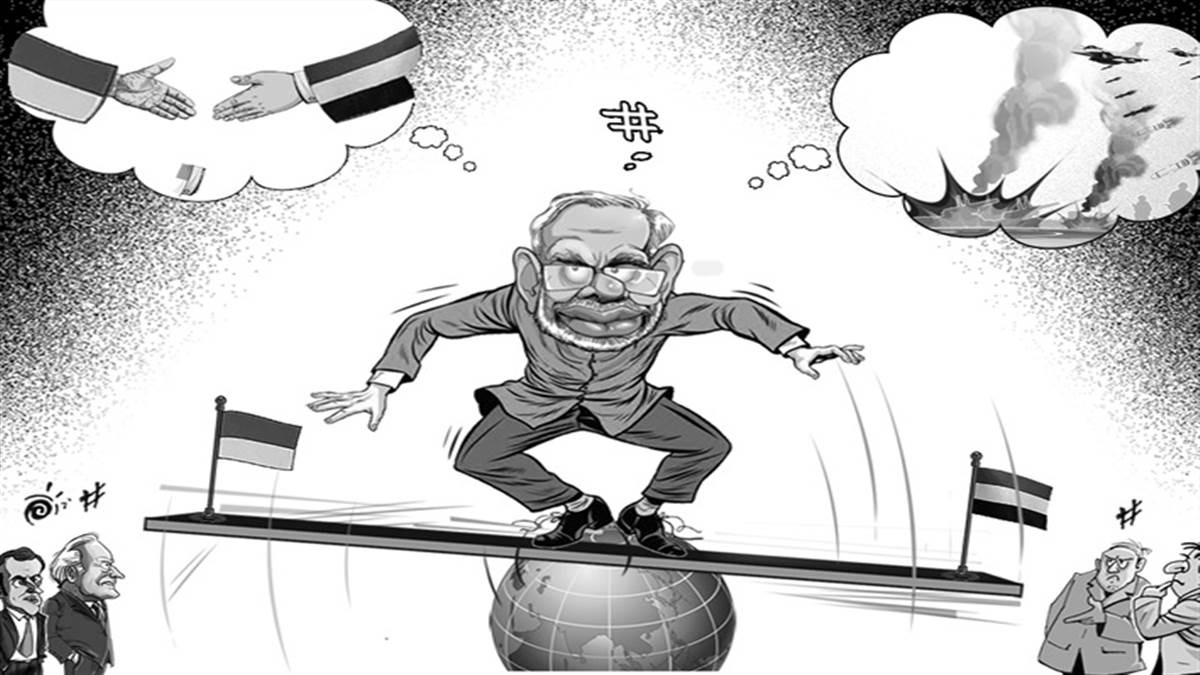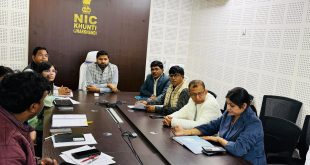During his visit to Ukraine, while talking to President Zelensky, Prime Minister Modi had said that we are not neutral. We have chosen a side from the very beginning and that side is peace. This was the first visit of any Prime Minister of India to Ukraine. He also visited Russia a month and a half ago. Then he told President Putin that war is not resolved on the battlefield, but on the day he was meeting President Putin, the Russian army attacked a children's hospital in Ukraine, in which at least 38 people, including children, were killed.
Although the Prime Minister condemned the incident calling it intolerable, he could not stop himself from condemning the US and its Western camp leaders for their visit to Russia and meeting Putin on the day of the attack. Zelensky also called it a grave disappointment and an attack on peace efforts. At the time of Prime Minister Modi's visit to Russia, the US was hosting the NATO summit in Washington, the main topic of which was naturally the Ukrainian crisis. When he visited Ukraine, Ukrainian forces were advancing, capturing territory in Russia's Kursk province.
Therefore, China and some other critics of India believe that the Indian Prime Minister had to make these two visits under pressure to please both Russia and the US. He had been avoiding the bilateral annual summit between Russia and India for the last two years and did not even attend the 2022 Shanghai Cooperation Organization summit. The relationship between Putin and Xi Jinping is getting stronger due to the increasing economic dependence on trade and the clear support on the front of the war in Ukraine and Western economic sanctions. This made it necessary to convince Putin about India's friendship.
On the other hand, the US and its allies were unhappy with India's avoidance of direct condemnation of Russia's aggression and neutralising Western economic sanctions by buying oil from Russia. It was also necessary to reassure them, but Zelensky's recent statements make it clear that despite publicly expressing displeasure over India's policies on the Ukraine war, he wants India to take the initiative for reconciliation. He has appealed to India several times for peace initiatives.
Oleksandr Merezhko, chairman of Ukraine's parliamentary foreign affairs committee, believes that the Indian Prime Minister's visit can be seen as a diplomatic victory for Ukraine. Perhaps the biggest reason for Ukraine's happiness over the Indian Prime Minister's visit is that India has been opposing war and favoring diplomacy since the beginning of the Ukraine crisis. It has good relations with both the US and Russia. It has been raising the voice of the southern countries but has not been seen standing with Russia like China. That is why Ukraine rejected Xi Jinping's first and then second peace proposal with Brazil last year.
India has condemned the war from the very beginning and has urged both sides to respect the principles of the UN Charter and territorial integrity and find a solution through diplomacy. During his European trip, Chinese President Xi Jinping visited Serbia and Hungary. He did not go to Ukraine, so Prime Minister Modi's visit to Ukraine was welcomed everywhere. He also informed President Biden and Putin about the talks held during his visit. In a phone conversation, President Biden appreciated the Prime Minister's message of peace and humanitarian relief. The next day, during a phone conversation with President Putin, the Prime Minister
Reiterated that India is fully committed to an immediate, permanent and peaceful solution to this crisis. He has clearly stated in September 2022 that this is not the era of war.
Russian analyst Oleg Ignatov says that Prime Minister Modi's visit to Ukraine is also being viewed positively in Russia. He says that India's role will be constructive and Russia will also welcome it. Although Russian Foreign Minister Lavrov has been ruling out the possibility of talks since the invasion of Ukraine's Kursk province, President Zelensky has said that he will support the second peace summit organized by India.
The first peace summit was held in Switzerland, where Russia was not invited and China did not attend due to Russia's absence. India attended but did not sign the summit's letter, calling it one-sided due to Russia's absence. Underlining this, the Chinese government's main paper Global Times wrote that any country that did not sign the first peace summit would not be allowed to host the second summit.
The problem is that the neutrality of the US, its allies and China, as well as non-aligned countries like Switzerland and Austria, has been questioned. This leaves India as the only country both sides can rely on. Therefore, if it succeeds in convincing both Russia and Ukraine to hold peace talks, such situations will probably not be allowed to come in the way.
To maintain its neutrality, India has made it clear that the formula for settlement will have to be decided by Ukraine and Russia. India will only be a resource, not a mediator. In any case, if the matter of organizing a peace conference hosted by India moves forward, it will add a new chapter to India's diplomacy, because till now India has been adopting a policy of remaining neutral in the conflict between the major parties. Not an active policy of restoration.
 look news india
look news india

